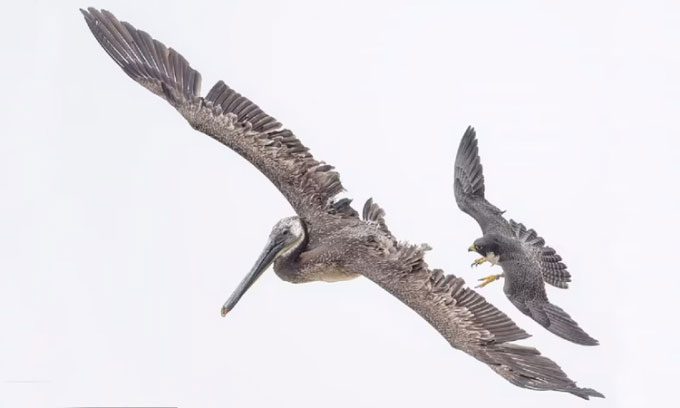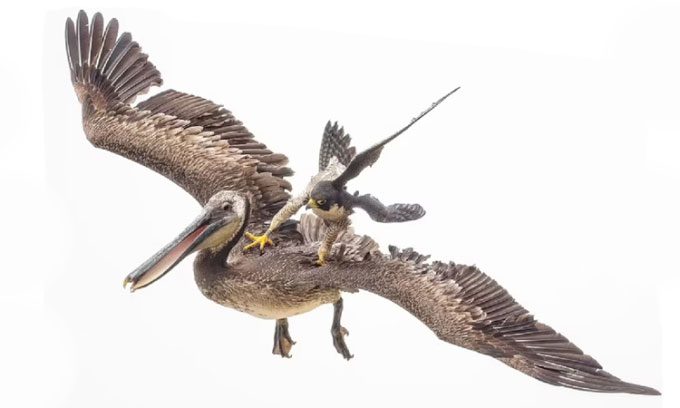A Peregrine Falcon Takes Action Against a Brown Pelican Approaching Its Nest
Photographer Phoo Chan captured a dramatic air encounter between a peregrine falcon and a brown pelican at Torrey Pines Beach in San Diego, California, as reported by Mail on May 23. Phoo took the photos from a distance of 30 meters, and the interaction lasted just one second.

A peregrine falcon approaches to chase away a brown pelican. (Photo: Phoo Chan)
A small flock of brown pelicans was flying near the peregrine falcon’s nest, Phoo recounted. In an instant, the male falcon flew out and delivered a powerful kick to the back of one pelican, causing it to stagger and attempt to escape the attack.
“The peregrine falcon is protecting its nest from any bird flying too close. Shocked and injured, the brown pelican managed to escape. Very few attacks result in fatalities, depending on which part of the body the pelican is hit,” he explained.

A peregrine falcon lands on the back of the pelican, forcing it away from the nest. (Photo: Phoo Chan)
The Peregrine Falcon (Falco peregrinus) is a bird of prey that can reach speeds of over 320 km/h when diving to catch its prey. Renowned for its incredible speed, it is the fastest bird in the world and the fastest animal overall. With a wingspan of over 1 meter, it typically hunts birds and bats.
In contrast, the Brown Pelican (Pelecanus occidentalis) is a large seabird with a heavy body that flies relatively slowly. They often feed on the eggs and young of other birds. With a wingspan ranging from 1.8 to 2.1 meters, brown pelicans can reach speeds of about 50 km/h.
“This kind of fast photography helps test your reflexes and agility. Only when you look at the details on the computer screen can you know exactly what happened. The naked eye can’t provide such accuracy simply because the events occur too quickly,” Phoo stated.
“Understanding the basic behaviors of birds often helps you prepare better to capture great photos. For instance, a bird’s body language will tell you whether it is ready to take off from its perch. It is important to understand and respect nature so that everyone can continue to enjoy this passion in the future,” he shared.


















































